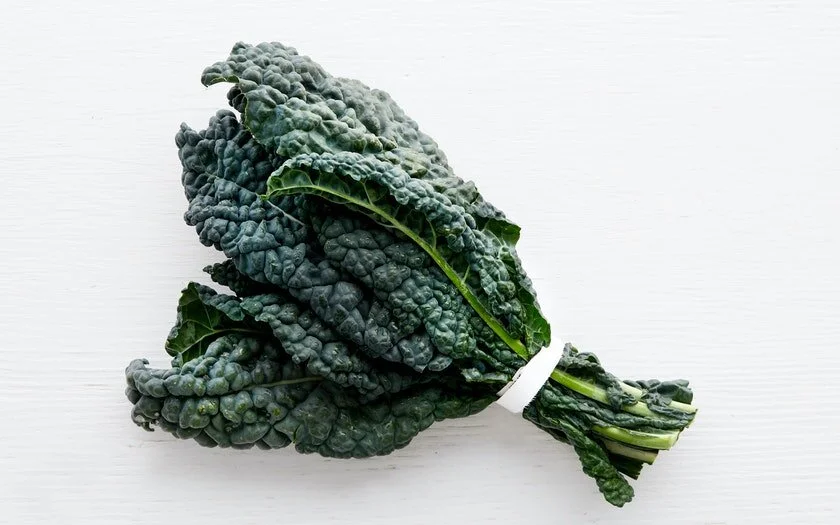Nutrition 101: Beauty from Within
True beauty comes from the inside out, beginning with the nutrients we put into our bodies.
The body thrives on the nutrients we get from our foods; they are the body's building blocks providing energy, structure and nourishment. Nutrients are divided into two main categories: micronutrients and macronutrients. Here are the basics of the vital nutrients we need to keep our mind, body and spirit healthy, happy and radiantly beautiful.
MACRONUTRIENTS: OUR BODY'S BUILDING BLOCKS
MACRONUTRIENTS include carbohydrates, proteins, and fats; they provide usable and storable energy and carry out specific functions within our body system; larger quantities of macronutrients are needed to build and maintain our body structure and achieve total health.
- carbohydrates: the body's main source of energy
- proteins: responsible for growth, tissue repair, and immune-system functioning
- fats: energy-dense macronutrient responsible for growth, absorption of fat-soluble vitamins, and for cellular health.
MiCRONUTRIENTS: protect, revive, repair.
MICRONUTRIENTS refer to vitamins and minerals, fiber and antioxidants; these are absolutely essential for our health, but these potent chemicals are only needed in small, trace amounts.
- vitamins + minerals: essential nutrients that perform vital body functions.
- calcium
- magnesium
- potassium
- zinc
- sodium
- copper
- iron
- vitamin A
- vitamin B
- vitamin C
- vitamin D
- vitamin E
- vitamin K
- fiber: aids in digestion and helps the body process food and expel waste.
- phytochemicals: bio-active food components with a tremendous impact on disease protection and prevention.
- antioxidants: super nutrient that fights harmful free radicals and protects against tissue damage and aging.
SUPERFOODS: EATING FOR NUTRITION, HEALTH, HAPPINESS, AND BEAUTY.
A simple guide to nutrient-dense foods to add to your diet to ensure you are fueling your body with beautifying micro- and macronutrients.
FRUITS: High in fiber, vitamin C and natural sugar.
Make smoothies, eat fruits as a snack between meals or add them to oatmeals and salads. Choose papaya, mangos, oranges/citrus, apples, cherries, kiwi, pineapple, melon, banana, dragonfruit, blueberries, strawberries, acai berries, all berries, pomegranate... you get the picture.
GREENS: High in vitamins A, C, K. Provides hydration via large water content.
Choose big, vibrant leafy greens such as spinach, kale, chard, or collards. Red and green lettuce, arugula and bok choy. Fresh broccoli, green beans, peas, brussels sprouts, as well as herbs such as basil, mint, and watercress.
HEALTHY FATS: Energy-dense and vitamin processing; omega-3 and omega-6 essential fatty acids.
Try adding in coconut, avocado, unrefined olive oil, nuts, seeds, ghee, almond butter, nut milks.... yum, yum, yum. Whatever you make, put an avocado on it.
HERBS + SPICES: A sprinkle of herbs and spices instantly add vitamins and minerals to meals. They increase blood flow and fight inflammation.
Sprinkle on some ginger, garlic, turmeric, basil, thyme, cloves, cinnamon, cardamom, cumin, coriander, fennel, oregano. Cinnamon on oats, turmeric in smoothies, cardamom in milk.... a little goes a long way.
WATER + FLUID: Whether taken warm with lemon, cool with cucumber, or from a coconut (hello, electrolytes!), water is a superfood for sure.
Carry a water bottle everywhere you go. Don't ever forget to keep hydrate. Add in fruits like citrus, strawberry, or herbs like mint or basil... you fancy huh?
NUTRITION BOOSTS: Probiotics from fermented foods like yogurt and kombucha, 'greens' powders like maca or spirulina, herbal and green teas, matcha, cacao, goji berries, chia seeds, and nut butters are all work wonders for boosting our nutrient intake.
Healthy food is natural, whole, nutrient dense, vitamin packed food which should be incorporated into your diet as much as possible. Food that is good for you should be easy on the digestive system. Packaged and processed food are "products" not real food! They are chemically altered and synthesized foods which are difficult for the body to process. Further more, they contain empty calories and virtually no vitamins nor nutrients. Every-body reacts to foods individually. Experiment, keep a food journal and eat foods that 'work for you' and contribute to your overall health and well-being.... you deserve it.
- choose organic wherever possible.
- limit sodium and preservative consumption
- avoid synthetic sugars, added coloring, fake flavors (at all costs)
- limit meat consumption: stick to lean meats, egg, and fish if possible.
- always wash before you eat
- try to eat in a relaxed manner in a calm environment for healthy digestion
- REPEAT GOOD HABITS -
CREATE A DAILY RITUAL:






















